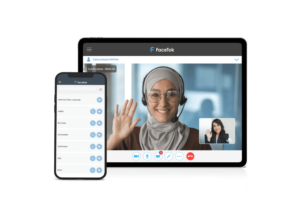1. Develop Language Proficiency:
- Fluency: Achieve fluency in at least two languages. Native-level proficiency in both the source and target languages is essential.
- Cultural Understanding: Gain an in-depth understanding of the cultures associated with the languages you are interpreting.
2. Obtain Relevant Education:
- Bachelor’s Degree: While not always mandatory, a degree in languages, linguistics, or a related field can be beneficial.
- Specialized Training: Consider enrolling in interpretation courses or programs offered by universities or professional organizations.
3. Gain Certification:
- National Certification: Obtain certification from recognized bodies such as the American Translators Association (ATA) or the National Association of Judiciary Interpreters and Translators (NAJIT).
- Specialized Certification: For fields like medical or legal interpretation, pursue additional certifications from relevant organizations like the Certification Commission for Healthcare Interpreters (CCHI) or the National Board of Certification for Medical Interpreters (NBCMI).
4. Build Experience:
- Volunteering: Gain experience by volunteering for community organizations or nonprofits.
- Internships: Seek internships or entry-level positions that offer practical interpreting experience.
- Freelance Work: Start by offering freelance services to build a portfolio and gain diverse experience.
5. Develop Professional Skills:
- Active Listening: Sharpen your ability to listen carefully and understand spoken language quickly.
- Note-Taking: Learn effective note-taking techniques to aid memory during consecutive interpreting.
- Public Speaking: Improve your public speaking skills to enhance your confidence and clarity.
6. Use Technology:
- CAT Tools: Familiarize yourself with computer-assisted translation (CAT) tools and interpreting platforms.
- Remote Interpreting: Gain proficiency in remote interpreting tools and platforms, which are increasingly in demand.
7. Join Professional Organizations:
- Networking: Join professional organizations like ATA, NAJIT, or the International Association of Conference Interpreters (AIIC) to network and stay updated on industry trends.
- Continued Education: Participate in workshops, webinars, and conferences to keep your skills sharp and learn about new developments in the field.
8. Specialize:
- Industry Focus: Consider specializing in specific fields such as medical, legal, business, or conference interpreting to increase your expertise and job opportunities.
9. Stay Updated:
- Continuous Learning: Keep abreast of linguistic, cultural, and technological changes to remain competitive in the field.
- Professional Development: Regularly update your skills through continued education and professional development opportunities.
By following these steps, you can build a successful career as an interpreter, contributing to effective communication and understanding across languages and cultures.




